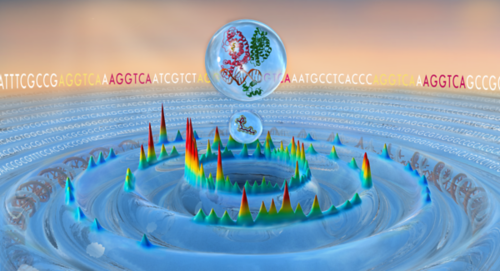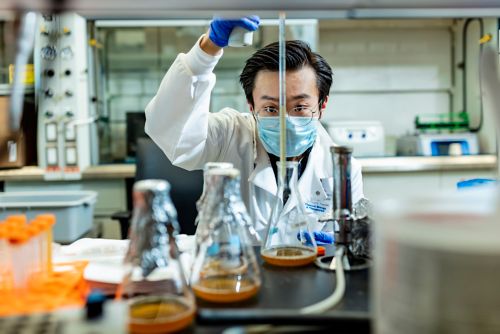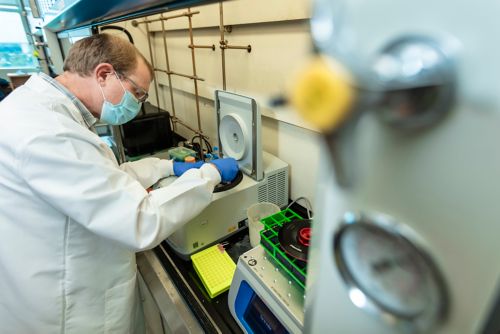St. Jude Family of Websites
Explore our cutting edge research, world-class patient care, career opportunities and more.
St. Jude Children's Research Hospital Home

- Fundraising
St. Jude Family of Websites
Explore our cutting edge research, world-class patient care, career opportunities and more.
St. Jude Children's Research Hospital Home

- Fundraising
Aseem Z. Ansari Lab
Designing gene switches to control the fate of stem cells and remedy gene networks in diseased cells
About the Ansari Lab
The genome encodes a finely balanced set of signals that require proper deciphering by cellular machinery. A breakdown in this process can lead to many diseases and inherited disorders. Our laboratory uses chemical and computational tools to understand and unravel the intricacies of gene expression. Armed with that understanding, we design synthetic molecules that read the genome and engage cellular machinery at targeted sites to resolve the disruptions that cause catastrophic diseases in children.

Our research summary
Our laboratory utilizes chemical and computational tools to understand and control critical mechanistic steps in gene regulation. This talented team of chemists, cell and molecular biologists, and computer scientists integrates concepts from diverse fields to create synthetic molecules that function as gene regulators. Our synthetic gene regulators (SynGRs) are designed to selectively read the genome and engage the relevant cellular machinery at targeted sites to remedy the disruptions in gene control circuits that cause catastrophic diseases in children.
Our research on the regulation of gene expression relies on extensive collaborations with deep-domain experts from multiple disciplines, including biophysics and structural biology, bioinformatics and computer sciences, pharmaceutical and clinical sciences. At St. Jude alone we collaborate with nearly a dozen other groups and have a broad network of collaborations that extend across the country and around the world.
These collaborations enable diverse groups to integrate their unique expertise in devising cutting-edge solutions to treat diseases and developmental disorders. We continue to build our global network of experts and develop broad collaborative endeavors anchored at St. Jude. The institution is on the path to becoming a world leader in the creation of novel transcription-targeted therapeutics.
Exploring how genomes are used
The first part of our research involves deciphering the genome using chemical probes, a process that involves understanding how different parts of our genomes are used to give rise to different cell types that in turn coherently interact with each other.
Our laboratory uses a variety of organisms – from simple bacteria to human stem cells – to better understand the machinery that selectively reads and transcribes the genome. Chemical and biological techniques allow us to control selected genes and observe the impact on other genes within a particular cell and on communities of cells. We examine the impact on gene transcripts, cellular proteins and biological function with high-throughput platforms, computational, chemical and biological tools. The resulting data allows us to reassemble the pieces of the puzzle and understand the network of genes that function as regulatory circuits to control cell fate and function.

Transcription-targeted therapeutics
A breakdown in how the instructions in the genome are deciphered underlies many pediatric diseases. Armed with a deeper understanding of the genome and its control switches, our laboratory works to develop chemical molecules to target malfunctioning switches or replace those that are missing.
This innovative approach is part of the foundation of the emerging field of transcription-targeted therapeutics: to remedy the malfunctioning gene circuits that cause human disease. This treatment approach would allow us to target an array of diseases and conditions – including hormone disorders, cancers, neurodegenerative diseases, and inherited diseases, among others – by facilitating the development of drugs that are precisely tailored to a particular individual and a specific disease.

Selected publications
Contact us
Aseem Z. Ansari
Chemical Biology and Therapeutics
MS1000, Room E9050A
St. Jude Children’s Research Hospital
Follow us

Memphis, TN, 38105-3678 USA GET DIRECTIONS